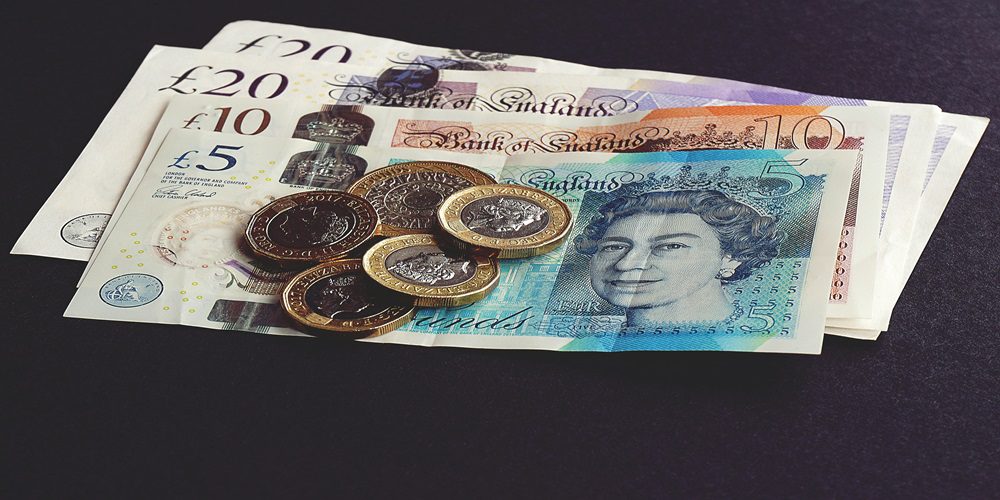Avoid Mistakes: Key Tips for Buying British Pound Currency

Are you planning a trip to the UK or looking to invest in British currency? Before you make any decisions, it’s important to arm yourself with the right information. In this blog post, we’ll cover key tips for buying British Pound currency and how to avoid common mistakes that could cost you time and money. Stay ahead of the game and make your pound go further by following our expert advice!
The British Pound is one of the oldest and most trusted currencies in the world. It has a long history dating back to over 1,200 years, making it a symbol of stability and strength in the global market. As an investor or traveler interested in purchasing this currency, understanding its nuances and fluctuations is crucial for making informed decisions. In this section, we will provide you with valuable insights into buying British Pound currency, including its history, value, and factors that influence its exchange rate.
History of the British Pound
The origins of the British Pound can be traced back to Anglo-Saxon times (circa 775-1100 AD), when silver pennies were used as a form of currency in England. Later on, these pennies were replaced by gold coins called “sterlings,” which eventually gave rise to the term “pound sterling.” Over time, Great Britain established itself as a dominant economic power with the pound as its official currency.
Today, the pound is managed by the Bank of England and is widely used not only in Great Britain but also in several other countries such as Gibraltar, Falkland Islands, and even some territories within Australia. It is also considered one of the top reserve currencies globally alongside US dollars and Euros.
Value and Exchange Rate Fluctuations
Like any other currency, the value of British pounds fluctuates daily due to various economic factors such as interest rates, inflation rates, GDP growth rates, political stability etc. For instance, if there are positive economic indicators such as low inflation rates or high GDP growth rate reported by Britain’s Office for National Statistics (ONS), it can lead to an increase in demand for British Pounds among investors resulting in appreciation.
On the other hand,
unexpected events like Brexit or changes in government policies can lead to fluctuations in exchange rates.
This volatility makes it essential for buyers to keep track of current affairs related to the United Kingdom and its economy.
The Importance of Researching Exchange Rates
Firstly, researching exchange rates allows you to get the best value for your money. The value of a currency is determined by its exchange rate against other currencies. By keeping track of the current exchange rate, you can make informed decisions about when to buy or sell British Pounds. This is especially important if you are planning on making a large purchase such as buying property or investing in stocks in the UK. A small difference in the exchange rate can result in significant savings or losses.
Furthermore, researching exchange rates also helps you plan your budget more effectively. When traveling to the UK, for example, knowing the current exchange rate will give you an idea of how much your trip will cost in terms of currency conversion. This allows you to budget appropriately and avoid any unforeseen expenses.
Moreover, understanding exchange rates also helps mitigate risks associated with currency fluctuations. If you are purchasing goods or services from another country using British Pounds, changes in the exchange rate can significantly affect your final cost. By staying informed on current rates, you can negotiate better deals and protect yourself from potential losses.
Additionally, conducting research on historical exchange rates can provide insights into possible future trends which may impact your decision to buy British Pounds at a particular time. You may find that waiting for some time could result in favorable changes in the exchange rate.
In today’s digital age, accessing information about foreign currencies has become much easier through various online sources such as financial news websites and foreign currency converters. These tools allow individuals to monitor live market rates and track any changes that occur throughout the day.
Researching exchange rates also equips one with knowledge about hidden fees and charges associated with exchanging currencies. Banks often charge commission fees or have unfavorable exchange rates, whereas independent currency exchanges may offer better deals. By doing your research, you can identify the best options for converting your currency and avoid any unnecessary fees.
Understanding Fees and Commissions
One of the most important aspects to consider when buying British pound currency is understanding fees and commissions. These are charges that will be incurred during the buying process and can greatly impact the final cost of your purchase. To avoid making costly mistakes, it is crucial to have a thorough understanding of these fees and how they are calculated.
The first fee to understand is the exchange rate. This is simply the rate at which one currency can be exchanged for another. The exchange rate for British pounds fluctuates constantly, so it is important to keep an eye on it before making a purchase. You may want to wait for a more favorable rate if you have some flexibility in timing your purchase.
Next, there may be transaction fees charged by banks or currency exchange companies. These are usually fixed fees or a percentage of the total amount being exchanged. It’s worth doing research beforehand to compare different providers and see which ones offer the most competitive rates.
Another key factor to consider is commission charges. When exchanging currency, some agencies or individuals may charge a commission fee for their services. This could range from a flat fee to a percentage of the total amount being exchanged. It’s important to clarify this with your chosen provider beforehand, as these fees can significantly add up.
For larger transactions, especially those involving large sums of cash, there may also be security or handling fees involved. Some providers may charge these additional fees as precautionary measures against potential fraud or theft.
It’s also essential to note that different methods of payment can result in varying transaction costs. For instance, using credit cards may incur additional foreign transaction fees while wire transfers might come with bank transfer charges.
To make sure you’re not paying more than necessary in terms of fees and commissions, it’s advisable to shop around for reputable providers who offer transparent pricing structures and reasonable rates.
Choosing the Right Time to Buy British Pound currency
Choosing the right time to buy British Pound currency is crucial for anyone looking to make a smart purchase. Buying at the wrong time can result in significant losses, while buying at the right time can bring in substantial gains. In this section, we will discuss some key tips for determining the best time to buy British Pounds.
First and foremost, it is essential to keep an eye on current economic and political events that may affect the value of the British Pound. These events could include changes in interest rates, inflation rates, and political instability. For example, if there is a sudden change in government or a major policy shift, it can lead to fluctuations in the currency’s value. Staying informed about these events can help you make a more informed decision on when to buy British Pounds.
Another factor to consider when deciding the right time to buy British Pounds is market trends and patterns. Currency markets are known for their volatile nature and are subject to many ups and downs in short periods. It is crucial to analyze market trends carefully before making any purchase decisions. You can observe historical charts of exchange rates for insights into price patterns over specific periods.
Additionally, keeping track of international trade policies can also be beneficial when determining an ideal time for purchasing British Pound currency. If there are tariff changes or trade wars between countries involving Britain, it could greatly influence their currency’s value.
Moreover, choosing the right day of the week or month may also impact your purchasing power significantly. Generally speaking, Mondays tend to see lower exchange rates as traders settle their positions from Friday trading activities. On the other hand, Wednesdays are considered one of the best days for buying currencies since mid-week brings in higher liquidity levels due to increased trading volumes.
Last but not least, consulting with financial experts or using trend analysis tools like technical indicators can also help determine when it is best to purchase British Pounds. These resources provide valuable insights into market trends and can assist in making more informed decisions.
Tips for Using ATMs and Credit Cards Abroad
When traveling abroad, it’s important to have a good grasp on how to use your ATM and credit cards in order to avoid costly mistakes and unnecessary fees. Here are some useful tips for using ATMs and credit cards while overseas:
1. Notify your bank and credit card companies: Before leaving for your trip, make sure to inform your bank and credit card companies about your travels. This will prevent them from flagging any international transactions as suspicious and potentially freezing your account.
2. Know the exchange rate: It’s crucial to understand the current exchange rate before withdrawing money or making purchases with your credit card. Keep in mind that most banks charge a foreign transaction fee of 3% for each purchase made abroad, so it may be more cost-effective to withdraw cash from an ATM.
3. Use ATMs associated with major banks: To avoid hefty fees, stick with ATMs that are affiliated with major banks in the country you are visiting. These ATMs typically have lower transaction fees compared to those operated by independent companies.
4. Always choose local currency: When using an ATM or paying with a credit card overseas, you may be given the option to pay in either local currency or US dollars/euros/pounds/etc. Always select the local currency option as this will likely result in a better exchange rate and avoid paying extra conversion fees.
5. Have a backup plan: It’s always wise to have multiple ways of accessing cash while traveling, especially if you’re relying heavily on withdrawals from an ATM. Carry some emergency cash in case of technical difficulties or unexpected closures of ATMs.
6. Look out for skimming devices: Skimming is when thieves use a device attached to an ATM machine that steals information from debit/credit cards used at that machine. Be aware of any suspicious-looking attachments or devices near the keypad when using an ATM.
7. Be cautious when using public Wi-Fi: Avoid accessing sensitive information like banking or credit card accounts while connected to public Wi-Fi. These networks are often unsecured and can make your personal information vulnerable to hackers.
Safety Precautions When Carrying Cash
When it comes to carrying cash, safety should always be your top priority. With the rise of pickpocketing and theft, it is important to take necessary precautions to ensure the safety of your money while traveling with British pounds. Here are some key tips to keep in mind when carrying cash:
1. Avoid carrying large amounts: The first rule of thumb is to only carry as much cash as you need. Carrying large sums of money can make you a target for thieves and increase the risk of losing all your funds at once.
2. Keep your cash concealed: Instead of keeping all your cash in one place, distribute it among different pockets or bags. This way, if one gets stolen or lost, you will still have some backup money left.
3. Use a hidden wallet or money belt: Consider investing in a small pouch or belt that can be worn under your clothes. These types of hidden wallets are not easily accessible to thieves and can greatly reduce the risk of losing all your cash at once.
4. Don’t flash your money in public: Avoid taking out large sums of money in crowded areas such as markets or tourist spots where you may attract unwanted attention and become an easy target for theft.
5. Be cautious at ATMs: When using an ATM machine, make sure no one is watching you enter your personal identification number (PIN). Also, avoid using standalone ATMs on deserted streets as they may not be secure.
6. Be vigilant in tourist areas: Popular tourist destinations are often targeted by pickpockets and scam artists who specifically look for unsuspecting travelers carrying large amounts of cash. Stay alert and keep an eye on your belongings at all times.
7. Use credit/debit cards instead: To minimize the amount of cash you carry, consider using credit/debit cards for larger purchases instead of relying solely on physical currency.
8. Notify bank/credit card company about travel plans: Before traveling, it is important to inform your bank and credit card company about your travel plans. This will ensure that they do not flag any international transactions you make as fraudulent and freeze your accounts.
Tracking Your Expenses and Budgeting for Your Trip
One of the most crucial aspects of planning for a trip to the United Kingdom is tracking your expenses and creating a budget. With the fluctuating exchange rate of the British pound, it is essential to stay organized and keep track of your spending in order to avoid any unexpected financial stress.
The first step in tracking your expenses is to create a detailed list of all expected costs for your trip. This includes transportation, accommodation, food, activities, and souvenirs. It is also important to consider any additional fees such as visa applications or travel insurance. Researching these expenses beforehand will give you a rough estimate of how much money you will need while traveling.
Once you have established your estimated costs, it is time to create a budget that works for you. Start by allocating specific amounts for each expense category based on their level of priority. For example, accommodations and transportation should be given more weight than souvenirs or dining out. By assigning a limit for each category, you can ensure that your expenses do not exceed your overall budget.
To help with tracking your expenses during your trip, there are several useful tools available such as apps like Mint or Expensify. These allow you to input transactions and categorize them accordingly so that you can see where exactly your money is going. You can also take advantage of spreadsheets or even pen-and-paper methods if technology isn’t easily accessible during your travels.
In addition to tracking daily expenses, it is also important to regularly monitor exchange rates before and during your trip. The value of the British pound can change significantly within short periods of time, so keeping an eye on its fluctuations can help inform decisions on when and where to make currency exchanges.
Another helpful tip when budgeting for international travel is leaving some room for unexpected costs or emergencies. While it may be tempting to allocate every penny towards planned expenditures, having some extra funds set aside can offer peace of mind in case unforeseen circumstances arise.
Other Factors to Consider Before Buying British Pound Currency
Aside from understanding the current political and economic landscape of the United Kingdom, there are other factors that you should consider before buying British Pound currency. These additional considerations can help you make a more informed decision and potentially mitigate any potential risks or mistakes.
1. Exchange Rate Fluctuations:
One important factor to consider is the exchange rate fluctuations between the pound and your home currency. The value of a currency can change rapidly, sometimes within minutes, so it is crucial to keep an eye on exchange rates before making a purchase. You can use online tools or apps to track real-time exchange rates, which can help you decide when is the best time to buy.
2. Transaction Fees:
When exchanging currency, financial institutions and money exchangers often charge transaction fees for their services. These fees can vary greatly depending on where you are buying your pounds from, so it is essential to research and compare different options available to find the most cost-effective one for your needs.
3. Location of Purchase:
The location where you plan on buying British Pounds should also be taken into consideration. Generally, major cities tend to have better exchange rates compared to smaller towns or airports due to higher competition among foreign exchange providers. If possible, try to avoid purchasing currency at airports as they usually have higher transaction fees and poorer exchange rates.
4. Timeframe:
Another significant factor in buying British Pounds is determining your timeframe for use. If you need the currency immediately or within a short period, then it may be wiser to convert small amounts at a time rather than exchanging all at once when the rates may not be favorable.
5. Travel Insurance:
An option worth considering when purchasing British Pounds is obtaining travel insurance that covers foreign currencies in case of theft, loss or damage during your trip. This will provide some protection against unforeseen circumstances that may result in losing money while traveling.
6.Budget Planning:
Before buying British Pound currency, it is crucial to have a clear budget plan for your trip. This will help you determine the amount of money you need to exchange and ensure that you do not overspend on unnecessary purchases.
Conclusion
Purchasing foreign currency can be a daunting task, especially when it comes to buying the British Pound. However, by following these key tips, you can avoid common mistakes and make an informed decision that will benefit your financial needs. Remember to research market trends, consider exchange rates and fees associated with currency conversion, and consult with a trusted professional if needed. By utilizing these strategies, you can feel confident in your purchase of British Pounds and have peace of mind knowing you made a smart investment.





